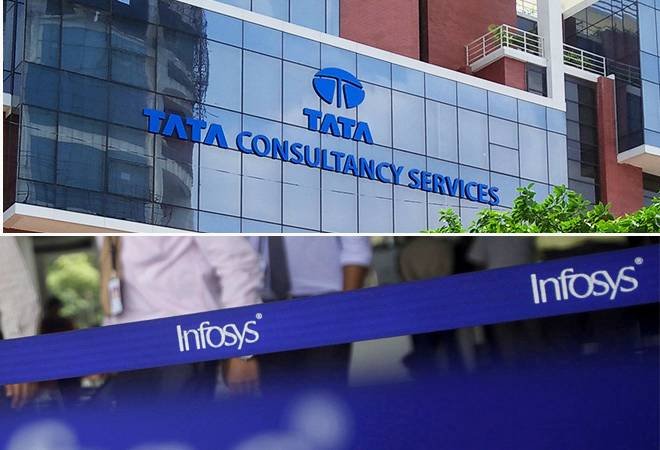According to a report by the Hindu Business Line, new graduate engineers in India are facing a challenging job market as IT hiring has hit a three-year low in FY24. The Indian IT industry is expected to recruit only 1.55 lakh new graduates this year, compared to 3 lakhs in previous years during more prosperous times.
The statistics from the report reveal a worrying trend. In FY22, the IT industry hired 390,000 fresh graduates, constituting about 26 percent of the engineering class in 2022. However, this number declined to 280,000 in FY23, indicating a cooling down in recruitment. The fear of a potential recession in the United States has emerged as a significant hurdle in the execution of existing projects, further dampening the hiring outlook for new engineers.
Interestingly, the advent of artificial technology has not helped alleviate the situation for newly recruited engineers, despite some assertions from senior officials in the IT industry. The figures show that job opportunities have yet to see a significant boost due to this technological advancement.
The slowdown in hiring is evident in major IT companies like Infosys, TCS, and Wipro, as they have witnessed a drop in attrition rates in Q1 FY24. Additionally, there has been a decline in the employee headcount for these companies.
TCS reported an attrition rate of 17.8% for the quarter, with a workforce strength of 615,318. The company’s net headcount addition was minimal, and the contribution of women in the workforce stood at 35.8%.
Infosys saw shrinkage in its headcount by 6,940 in Q1 FY24, while the attrition rate improved by over 300 basis points, standing at 17.3 percent. The net employee headcount at Infosys also experienced a marginal decline.
These declining numbers and reduced attrition rates signal a tough job market for new graduate engineers in the IT industry. As the industry faces challenges such as a recession and technological advancements, graduates may need help securing suitable job opportunities.
During a week of overall weak performance in the stock market, eight out of the top 10 most valuable companies experienced a combined decrease in market valuation of Rs 1,17,493.78 crore. This decline affected prominent companies such as Infosys, Reliance Industries, Tata Consultancy Services (TCS), HDFC Bank, ICICI Bank, Hindustan Unilever, Bharti Airtel, and HDFC. However, there were exceptions, as ITC and the State Bank of India saw increased market valuation.
Infosys, one of India’s leading IT services companies, suffered the most significant decline in market valuation, plummeting by Rs 66,854.05 crore to reach Rs 5,09,215 crore. This considerable drop came after the company reported lower-than-expected growth in fourth-quarter net profit and provided a weak revenue growth guidance of 4-7% for the fiscal year 2024. The subdued revenue outlook was attributed to IT budget tightening by clients following the turmoil in the US banking sector. The market responded negatively to these developments, leading to a significant decrease in Infosys’ market capitalization.
HDFC Bank, one of India’s premier private sector banks, also experienced a decline in market valuation. Its valuation fell by Rs 10,880.5 crore to reach Rs 9,33,937.35 crore. Similarly, ICICI Bank, another prominent private sector bank, lost Rs 10,462.77 crore in market capitalization, bringing its valuation to Rs 6,17,477.46 crore. TCS, India’s largest IT services exporter, saw a decline of Rs 10,318.52 crore in market capitalization, reaching Rs 11,56,863.98 crore.
Hindustan Unilever, a leading consumer goods company, witnessed a decrease in market valuation by Rs 8,458.53 crore, reaching Rs 5,86,927.90 crore. Additionally, HDFC, a renowned housing finance company, saw a decline in valuation by Rs 5,172.27 crore, reaching Rs 5,06,264.24 crore.
Reliance Industries, India’s largest conglomerate, saw its market valuation decrease by Rs 4,566.52 crore, reaching Rs 15,89,169.49 crore. Bharti Airtel, a prominent telecom company, also experienced a dip of Rs 780.62 crore in market capitalization, bringing its valuation to Rs 4,26,635.46 crore.
Despite the overall trend of declining market valuations, ITC, a diversified conglomerate, witnessed an increase in valuation by Rs 15,907.86 crore, reaching Rs 5,07,373.82 crore. The market valuation of SBI, the country’s largest public sector bank, climbed by Rs 8,746.11 crore to get Rs 4,84,561.80 crore.
Reliance Industries continued to maintain its position as the most valued company in India. These market fluctuations highlight companies’ volatility and uncertainty in the current economic landscape. Global economic conditions, industry-specific challenges, and company-specific developments can significantly impact market valuations. Investors and stakeholders closely monitor these changes to assess the performance and prospects of the companies they are invested in.
